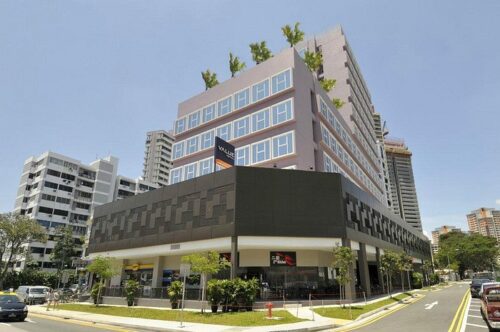VALUATION OF A HOTEL
A hotel is defined as a superior building a accommodate strangers and its value depends entirely on its capacity of earnings a profit form a particular type of business activity i.e hospitality . It is a licensed premise in the sense that a license to run a hotel is to be obtained from the concerned authority and the conditions imposed by license authority are to be strictly observed.
To conduct the affairs of a hotel is a trade or business in itself and when the owner himself constructs a hotel and is in charge of running such a hotel , the valuation of such a hotel is to be based on gross receipt or collection during the year. If on the other hand the hotel is run by a tenant on payment of a fixed rent, the process of valuation of a hotel is similar to that of an ordinary rented property.
The valuation of a hotel typically involves assessing its market value, which is based on several factors, such as its location, size, brand, facilities, reputation, and financial performance. Here are some of the key steps involved in valuing a hotel:
- Determine the purpose of the valuation: The valuation process will differ depending on the purpose of the valuation. For instance, if the valuation is for financing purposes, the lender may have specific requirements for the valuation. If the valuation is for selling the hotel, the valuation will need to be conducted with potential buyers in mind.
- Assess the hotel’s location: The location of the hotel is one of the most critical factors in determining its value. Factors that may affect the hotel’s value include the proximity to tourist attractions, transportation hubs, business districts, and other amenities.
- Evaluate the hotel’s size and facilities: The hotel’s size and the number of rooms it has are essential factors in its valuation. Other facilities, such as restaurants, conference rooms, and spas, also play a significant role in determining the hotel’s value.
- Consider the hotel’s brand and reputation: The hotel’s brand and reputation are critical factors in determining its value. A hotel with a well-known brand and a positive reputation may have a higher value than a hotel with a lesser-known brand and a negative reputation.
- Analyze the hotel’s financial performance: The hotel’s financial performance is a crucial factor in its valuation. Key financial metrics that should be considered include the hotel’s revenue, expenses, occupancy rates, and profit margins.
- Apply appropriate valuation methods: Various methods can be used to value a hotel, including the income approach, the market approach, and the cost approach. The choice of valuation method will depend on the purpose of the valuation, the hotel’s characteristics, and the availability of data.
- Determine the value of the hotel: After considering all relevant factors, a final value can be determined for the hotel. This value will be used for various purposes, such as for financing, selling, or accounting purposes.
Overall, valuing a hotel is a complex process that requires expertise and knowledge of the hospitality industry. It is essential to work with experienced professionals who understand the nuances of hotel valuation to ensure an accurate and reliable valuation.
When conducting a valuation of a hotel, there are several key points to keep in mind:
- Market trends: Market trends and conditions can significantly impact the value of a hotel. It’s important to stay up-to-date with market trends, such as changes in demand, occupancy rates, and average daily rates.
- Comparable properties: It’s important to compare the hotel to similar properties in the market to determine a fair market value. Comparing the hotel to other properties with similar characteristics, such as location, size, and amenities, can provide a basis for determining value.
- Revenue and expenses: Understanding the hotel’s revenue and expenses is critical to determining its value. Accurately tracking financial metrics such as gross revenue, net income, and occupancy rates can provide insights into the hotel’s performance.
- Brand recognition: A hotel’s brand recognition can significantly impact its value. A well-known and reputable brand can command a premium price, while a lesser-known brand may have a lower value.
- Physical condition: The physical condition of the hotel, including its age, maintenance, and upkeep, can impact its value. A well-maintained and modern property may be worth more than an older or outdated property.
- Debt and liabilities: Understanding any existing debt or liabilities associated with the hotel is important when determining its value. This includes outstanding loans, liens, or legal judgments that could impact the property’s financial performance.
- Future potential: Finally, it’s important to consider the hotel’s future potential when valuing the property. This could include plans for renovations, expansion, or other improvements that could increase the property’s value in the future.
FOR MANY MORE UPDATES AVAILABLE CLICK BELOW
CLICK THE BELOW LINK TO READ THE COMPLETE CONTENTS
SOME CONTENTS OF THIS WEBSITE ARE FOR GOLD SUBSCRIBERS ONLY.
Join us as a GOLD SUBSCRIBER and get access to read important books.
KIND ATTENTION
We are going to close all what’s groups of CEV soon due to difficulties in posting information or message in more than 5 groups of CEV at a time.
All future posts of empanelment notices & professional importance will be shared on
1. https://t.me/+dbHNkNO22xsyYTY1
2. www.valuerworld.com
3. The Twitter handle of CEV India
https://twitter.com/cevindia?t=XbqlvnwUVz1G3uPgs749ww&s=09
after closing the groups.
All members of these groups are requested to register themselves at the following link immediately for Getting all related timely updates.


